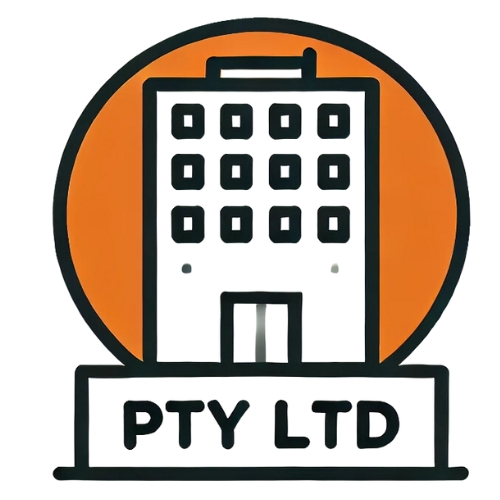
Starting a business in South Africa offers a range of opportunities in a vibrant and expanding economy. However, the process of registering a company can appear challenging, with numerous legal and administrative steps to follow. From selecting the right type of company to registering with the Companies and Intellectual Property Commission (CIPC), understanding the basics is essential for a smooth setup. So, how can you make sure your company registration is efficient and compliant with South African regulations?
Key Takeaways
- Legal Recognition and Protection: Registering a company in South Africa provides legal recognition, protecting personal assets and allowing the business to operate under its own legal identity.
- Better Funding Access: Registered companies can access more funding options, including loans, investments, and government grants, which support business growth.
- Increased Credibility: Registration enhances the business’s credibility and trustworthiness, reassuring customers and partners of its adherence to legal and ethical standards.
About Arcadia Finance
Get your loan seamlessly with Arcadia Finance. With no application fees, you can choose from 19 trusted lenders, all compliant with South Africa’s National Credit Regulator standards. Experience a hassle-free process and dependable options designed to meet your financial needs.
Why Registering a Company is Important
Legal Recognition
Registering a company provides it with legal recognition, distinguishing it as a separate legal entity from its owners. This separation protects the personal assets of the business owners from liabilities incurred by the company. It also allows the business to enter into contracts, sue, and be sued in its own name, ensuring a clear legal framework for its operations.
Access to Funding
A registered company can access a wider range of funding options compared to unregistered businesses. Banks, investors, and other financial institutions are more likely to provide loans and investment to registered entities due to their greater transparency and accountability. Additionally, many government grants and incentives are available only to registered companies, making it easier to secure the necessary capital for growth and development.
Credibility and Trust
Registration enhances the credibility and trustworthiness of a business. Customers, suppliers, and partners are more likely to engage with a company that is officially recognised and regulated. This formal status reassures stakeholders that the business adheres to legal standards and ethical practices, fostering confidence and long-term relationships. Furthermore, a registered company can more effectively build its brand and reputation in the marketplace, setting the stage for sustained success.
For businesses looking to thrive, South Africa offers streamlined registration processes, making it easier for entrepreneurs to take the first step. This simplicity is another reason Investors Eye South Africa Startups with confidence.

How Do I Register a Business in South Africa?
After deciding on the type of business you wish to establish, you can begin the registration process. Here’s a step-by-step guide to help you through it.
To register your company, you will need the following:
Notice of Incorporation
This document must include:
- Type of Company: Specify whether it’s a private, public, or other type of entity.
- Date of Incorporation: The official start date of your business.
- Financial Year-End: The closing date for your company’s financial year.
- Registered Address: The primary location of your business operations.
- Number of Directors: Total directors involved in your business.
- Company Name: The official name of your company.
- Registration Number: Indicate if the company name will serve as the registration number.
- Reserved Name and Reservation Number: If applicable, provide these details.
- Alternative Names: A list of four potential names for verification by the Commission.
Memorandum of Incorporation
This document should include:
- Founders’ Details: Information about the individuals founding the company.
- Directors’ Information: The number of directors and any alternate directors.
- Share Capital: The amount of share capital the company has.
Supporting Documents
In addition to the above, you’ll need several administrative documents:
- CoR 14.1: Notice of Incorporation
- CoR 15.1A: For a standard private company
- CoR 15.1B: For a customised private company
These forms can be downloaded from the CIPC website.
Other required documents include:
- Certified Copies of IDs: For all initial directors and incorporators.
- Power of Attorney: If you are incorporating an existing business.
- Name Reservation Document: If you have reserved a business name prior to submitting your incorporation documents.
Fees and Timelines
The cost of registering a business in South Africa varies depending on the type of entity, ranging from R125 to R475. The registration process can be completed within 24 hours if a name reservation is not required beforehand.
Online Registration
You can register your company online through the CIPC website. Here’s how:
- Register as a CIPC Customer: Sign up to access the CIPC transactional portal.
- Navigate to the Registration Tab: Go to the “Companies – New Companies” section.
- Submit Your Documents: Upload the required forms and documents.
- Pay the Fees: Complete the payment process.
- Confirmation: Once processed, you will receive confirmation of your company’s registration.
By following these steps, you can ensure a smooth and efficient registration process for your new business in South Africa.
Understanding and preparing the necessary FICA documents is a critical step in the company registration process. Ensure you have everything in order to avoid any delays.
What Type of Business Should I Register?
Before registering your start-up, it is crucial to determine the type of business you intend to establish. The structure of your business will be influenced by two main factors:
- How many founders are involved?
- How many individuals will have control over the business?
Here are the four primary types of businesses you can register:

Sole Proprietorship
This structure suits entrepreneurs who are building a business independently, without partners or co-founders. Many start as sole proprietors, and this structure can evolve into a more complex business structure as the business grows.

Partnership
A partnership involves two or more individuals running the business together. This setup can be advantageous if you and your partners have complementary skills. For example, a persuasive salesperson might team up with a chartered accountant to balance strong sales efforts with sound financial management.

Proprietary Limited Company (Pty Ltd)
A private company is a distinct legal entity separate from its owner. This means you can establish a private company on your own, and if the business faces difficulties, your personal assets are protected from being seized to cover business debts.

Public Company
A public company allows its shares to be traded on a stock exchange, and the company’s value is reflected in its share price. This structure enables anyone to become a shareholder in your business by purchasing stocks, providing a means to raise capital from the public.
Securing the necessary capital for your new business venture is crucial. Learn about the best startup loans in South Africa to kickstart your company and get ahead of the competition with the right financial backing.

What Important Details Should I Be Aware of Regarding Trademarks?
A trademark encompasses a brand name, slogan, or logo that helps your business become easily recognisable and distinct from competitors.
Registering a trademark grants you exclusive rights to its use. If someone else uses it or something similar, you have the legal authority to take action against them. Without a registered trademark, legal protection against imitators is limited, potentially leaving your business vulnerable.
Timing for Trademark Registration
To register your trademark in South Africa, you must go through the Companies and Intellectual Property Commission (CIPC), which maintains records of all registered trademarks in the country. It is advisable to register your trademark as soon as your business is established to prevent others from claiming your business name, logo, or slogan. After registration, the CIPC will issue a certificate granting you ownership and exclusive rights to use the trademark.
Duration of Trademark Protection
Trademark protection can last indefinitely, provided you renew the registration every ten years and pay the associated fees. Failing to renew your trademark will result in its expiry, making it available for others to register.
Registering Your Trademark Internationally
Here are the benefits you get on registering your trademark internationally:
Global Recognition: If your business operates online, international trademark registration ensures your branding is recognised worldwide and remains unique.
Counterfeit Protection: Registering your trademark overseas safeguards against counterfeiters who might exploit your brand’s reputation for their gain.
Supply Chain Integrity: Protecting your trademark internationally helps prevent misuse by foreign manufacturers or subcontractors who might exploit your brand for their benefit.
Local vs. International Focus: If your business is currently local, a domestic trademark might suffice until you pursue international expansion.

What Should I Understand About Domain Names for Websites?
Your Online Identity: A domain name represents your website’s identity. No two companies can share the same web address, making each domain name unique and available on a first-come, first-served basis.
Memorable and Simple: Aim for a domain name that is both catchy and straightforward. Register your desired name early to ensure it’s not taken by someone else.
Starting Out: You can register your domain name through various organisations, each offering different options and services, including website management. To find suitable registrars, search online for domain registration services in South Africa.
Should I Register Defensive Domain Names?
Defensive domain names involve pre-emptively registering names you might need in the future. If you anticipate business growth or the need for additional websites, consider securing these names early.
Intellectual Property Protection: Registering defensive domain names can safeguard your intellectual property against imitation.
Profit and Reputation Protection: Competitors might use similar domain names to capitalise on your brand, potentially leading to lost profits and reputational harm. Registering defensive names helps protect your business from these risks.

Steps for Starting a Business (SA Citizens)
Follow our step-by-step guide and checklist to navigate the formal business registration process smoothly:
- Generate Four Potential Business Names
Come up with at least four different names for your business. This provides backup options if your first choice is unavailable.
- Verify Domain Name Availability
Check if the web domain names for your chosen business names are available. This is important for establishing an online presence.
- Select a Type of Business Entity
Choose the legal structure of your business, such as a Private Company (Pty) Ltd, Public Company (Ltd), or Non-Profit Company (NPC).
- Collect Directors’ Addresses
Ensure you have the residential addresses of all directors, as this information will be required during the registration process.
- Gather Identity Documents
Prepare all necessary identity documents for directors and shareholders, including ID copies and proof of residence if needed.
- Establish the Business Address
Determine the official address of your business, which will be used for official correspondence and registrations.
- Count Current Employees
Document the current number of employees in your business, as this information might be needed for compliance and registration purposes.
- Decide on Share Issuance
Determine the number of shares your company will issue. This decision is crucial for defining ownership and equity distribution.
- Confirm Number of Directors
Verify the total number of directors who will be part of the company. This is a key component of your company’s structure.
- Allocate R50 for Name Reservation (Optional)
Consider reserving your business name with the Companies and Intellectual Property Commission (CIPC) for R50. This optional step can secure your chosen name while you complete other requirements.
- Prepare R125 for Business Registration
Have the R125 registration fee ready, which is necessary for officially registering your business with the CIPC.
- Determine VAT Registration Necessity
Evaluate whether your business needs to register for Value-Added Tax (VAT), which is mandatory for businesses exceeding a certain turnover.
- Assess Need for B-BBEE Certification
Determine if your business requires a Broad-Based Black Economic Empowerment (B-BBEE) certificate, which is important for compliance and accessing specific opportunities.
- Choose a Bank for Your Business Account
Select a bank to open your business account. Having a separate business bank account is essential for efficient financial management.
By following this detailed checklist, you can ensure that you meet all the necessary steps and requirements for registering your business in South Africa, laying a strong foundation for your entrepreneurial journey.

Starting a Business Checklist for Foreigners
The guidelines for establishing and running a business in South Africa are uniform for both locals and foreigners. All businesses must comply with South African laws.
Business Permit
Foreign entrepreneurs must have the appropriate visa to register a business in South Africa. A business permit (business visa) is essential for foreign nationals planning to start or manage a business in the country.
To qualify for a business visa, you must meet one of the following criteria:
- Invest R5 Million: Invest R5 million into an existing business or submit a business plan showing this investment.
- Establish a Business of National Interest: Start a business that is deemed to be of national interest according to the Industrial Policy Action Plan (IPAP), with no minimum capital requirement.
The Department of Home Affairs oversees the business visa process, while the Department of Trade, Industry and Competition (DTIC) assists in recommending support for visas granted to businesses with a significant economic impact.
Work Permit
The Department of Home Affairs issues work permits (temporary visas) to foreigners.
Types of work-related temporary visas include:
- General Work Visas: Issued when it can be conclusively proven that no qualified South African citizens or permanent residents are available to fill the position.
- Critical Skills Visa: The Minister of Home Affairs periodically publishes a list of critical skills in the Government Gazette. To apply, you must provide proof of your qualifications in one of these critical skill areas.
- Intra-company Transfer Visa: Multinational companies may transfer an existing employee in a key position from a foreign branch to a branch, subsidiary, or affiliate in South Africa. These employees must apply for an intra-company transfer work permit.
Following this checklist ensures compliance with South African regulations, enabling a smooth process for starting a business as a foreign national in the country.
Conclusion
Registering a company in South Africa is a crucial step for any entrepreneur, offering legal recognition and protection, better access to funding, and enhanced credibility. By navigating the registration process efficiently, you position your business for growth and success in a dynamic and competitive market. This formal status not only safeguards your personal assets but also builds trust and confidence among customers, suppliers, and partners, setting the stage for sustained business relationships and opportunities.
Frequently Asked Questions
The cost of registering a company in South Africa varies depending on the type of entity, ranging from R125 to R475.
To register a company in South Africa, you need to:
– Decide on the type of company.
– Prepare the necessary documents.
– Register with the Companies and Intellectual Property Commission (CIPC).
This includes having a unique company name, details of directors, and the company’s registered address.
The required documents include:
– Notice of Incorporation
– Memorandum of Incorporation
– Certified copies of IDs for all initial directors and incorporators
– Any necessary supporting documents, such as the Name Reservation Document if applicable
The registration process can be completed within 24 hours if a name reservation is not required beforehand. However, if a name reservation is necessary, it might take a few additional days.
Yes, you can register your company online through the CIPC website. You need to:
Register as a CIPC customer
Submit the required documents
Complete the payment process
Once processed, you will receive confirmation of your company’s registration.
Fast, uncomplicated, and trustworthy loan comparisons
At Arcadia Finance, you can compare loan offers from multiple lenders with no obligation and free of charge. Get a clear overview of your options and choose the best deal for you.
Fill out our form today to easily compare interest rates from 19 banks and find the right loan for you.


